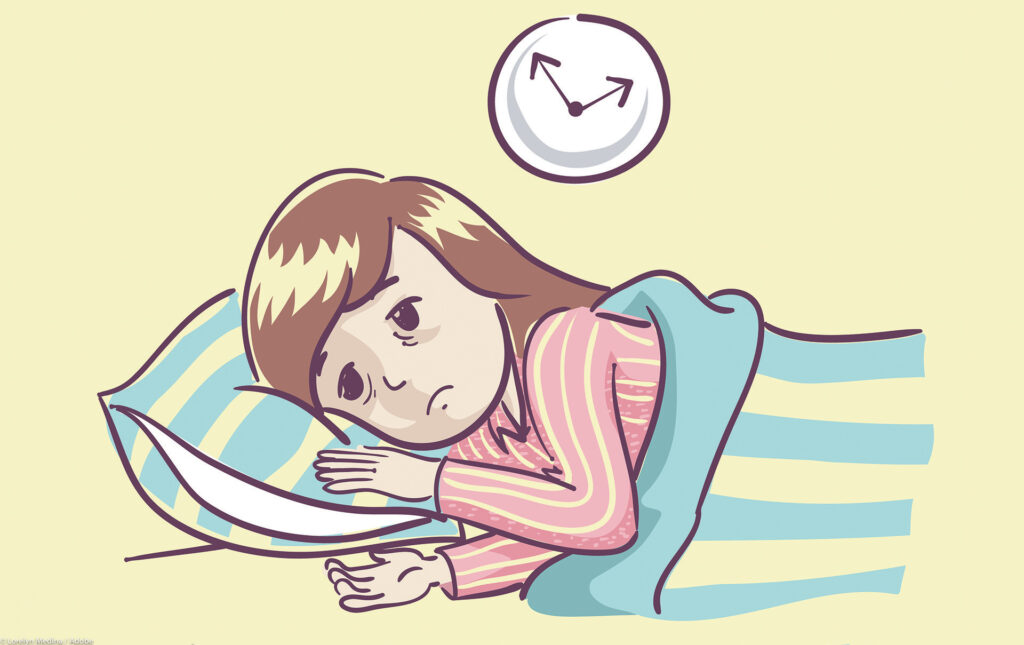Insomnia is a sleep disorder that can affect anyone at any age. However, it is most commonly seen in adults and children. In this blog post, we will be discussing childhood insomnia in detail. We will look at the symptoms, tips for treatment, and different therapies available. We will also hear from a case study of a child who struggled with insomnia and how they coped.
Contents
Understanding Childhood Insomnia
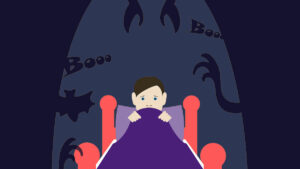
Childhood insomnia is a sleep disorder that affects children between the ages of 18 months and 12 years old. It can cause problems such as difficulty falling asleep, frequent awakenings during the night, or early morning awakenings. Symptoms can vary from child to child and may change over time.
NOTE: Childhood insomnia is a very common sleep disorder. It affects around one in every five children.
Types of Childhood Insomnia
There are three main types of childhood insomnia:
Difficulty falling asleep: This is the most common type of childhood insomnia. Children of this type have trouble falling asleep at night and may take a long time to fall asleep.
Frequent awakenings during the night: Children with this type of insomnia frequently wake up during the night and have trouble getting back to sleep.
Early morning awakenings: Children with this type of insomnia wake up early in the morning and have trouble going back to sleep.
Signs of Childhood Insomnia
The signs of childhood insomnia can vary from child to child. However, some common symptoms include:
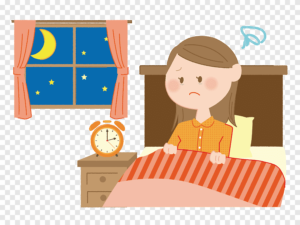
Behavioral Symptoms
- Tiredness or fatigue
- Irritability or moodiness
- Restlessness or hyperactivity
- Poor concentration
Physical Symptoms
- Headaches
- Stomach aches
- Chest pains
- Sore throat
- Trouble breathing
Emotional Symptoms
- Anxiety or worry about sleep
- Depression or sadness
- Nightmares or night terrors
Mental Symptoms
- Difficulty paying attention
- Poor memory
- Trouble learning new things
Risk Factors of Childhood Insomnia
There are several risk factors that can increase a child’s chances of developing childhood insomnia. Some of these include:
Sleep disorders: Children who have other sleep disorders, such as restless legs syndrome or sleep apnea, may also have difficulty sleeping.
Disruptions in sleep routine: If a child’s normal sleep routine is disrupted, they are more likely to develop insomnia. This includes changes in school schedules, family vacations, or illnesses that cause disruptions in sleep.
Poor sleep habits: If a child has poor sleep habits, they are more likely to develop insomnia. This includes going to bed late, sleeping in on weekends, watching television in bed, and eating heavy meals before bed.
Stress or anxiety: Children who are stressed or anxious are more likely to develop insomnia. This can be due to stress from school, family problems, or social pressures.
Medical conditions: Children who have certain medical conditions are at a higher risk of developing childhood insomnia. These conditions include asthma, diabetes, and ADHD.
Pain: Children who are in pain may have difficulty sleeping. This can be due to a health condition such as an ear infection or a headache, or due to something that is causing them stress.
Living With Childhood Insomnia

As a parent, it is important to understand that childhood insomnia can have a significant impact on your child’s physical, emotional, and mental health. The following are some of the ill-effects of childhood insomnia:
Ill-effects On Physical Health
Children who have difficulty sleeping are more likely to suffer from physical health problems such as headaches, stomach aches, and chest pains. They may also have trouble breathing and experience sore throats more often.
Ill-effects On Mental Health
Insomnia can cause children to feel tired and irritable during the day. This can lead to moodiness, problems with concentration, and difficulty learning new things. Children who have trouble sleeping may also be more likely to experience anxiety and depression.
Ill-effects On Emotional Health
Insomnia can cause children to feel anxious and worried about sleep. They may also experience sadness or depression due to a lack of sleep. Children who have frequent nightmares or night terrors may feel scared and unsafe in their own beds.
Ill-effects On Growth
Insomnia can interfere with a child’s normal growth and development. This is because sleep is important for healthy brain function. Children who don’t get enough sleep may have difficulty paying attention, poor memory, and trouble learning new things.
Ill-effects On Overall Development
Insomnia can affect a child’s overall development by interfering with their ability to learn, concentrate, and remember things. It can also cause them to feel tired and irritable during the day, which can impact their social life and relationships.
Helping Your Child With Childhood Insomnia
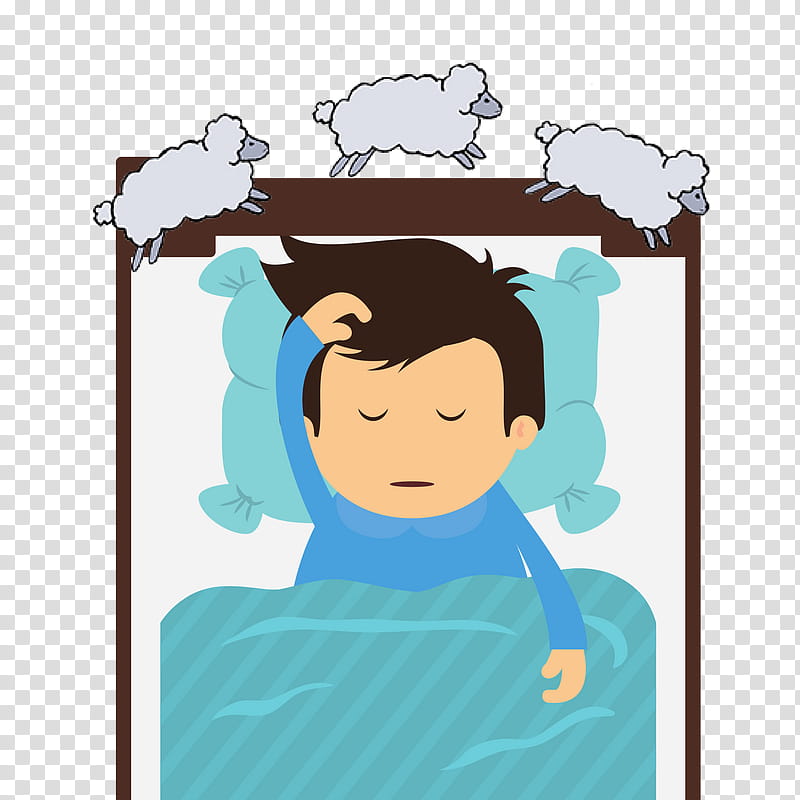
There are several things that you as a parent can do to help your child cope with childhood insomnia. The following are some self-help tips:
Self-help Tips
Avoid caffeine: Avoid giving your child caffeinated drinks such as soda or coffee in the evening.
Encourage physical activity: Make sure your child gets plenty of exercise during the day. This will help them feel tired and sleepy at bedtime.
Limit screen time: Make sure your child avoids watching television, using the computer, or playing video games in the hours leading up to bedtime.
Avoid heavy meals: Don’t have your child eat a large meal right before bedtime. Try to have them finish eating at least two hours before going to sleep.
Create a regular sleep routine: Establish a bedtime routine and stick to it as much as possible. This includes going to bed and waking up at the same time each day, even on weekends.
Self-help Techniques
There are also a few self-help techniques that your child can use when they have difficulty sleeping. These include:
Relaxation techniques: Teach your child relaxation techniques such as deep breathing and muscle relaxation.
Visualization: Help your child learn to visualize themselves in a calm and peaceful place.
Positive self-talk: Help your child learn to talk positively to themselves about sleep. This can help them feel more relaxed and calm when trying to fall asleep.
Self-help Tools
There are also a few self-help tools that your child can use to improve their sleep. These include:
Comfort items: Help your child create a comfortable sleep environment by providing them with soft bedding, a favorite toy, or a relaxing scent.
Sleep environment: Make sure your child’s bedroom is dark, quiet, and cool. Avoid having a television in the bedroom and keep all electronics out of the room.
Sleep medication: If your child’s insomnia is severe, your doctor may prescribe sleep medication. However, it is important to use these medications only as prescribed and under the supervision of a doctor.
Sleep diary: Help your child keep track of how much sleep they get each night, what time they go to bed and wake up, and any difficulties they have sleeping. This can help you and your child identify patterns and problems with sleep.
Talking To Sleep Therapist
If your child continues to have difficulty sleeping, you may want to consider talking to a sleep therapist. A sleep therapist can help your child develop healthy sleep habits and address the root cause of their insomnia.
Therapies
If your child’s insomnia is causing significant problems in their life, or if it is not responding to self-help measures, then you may want to consider seeking therapy. Talk to your doctor about whether therapy is a good option for your child. There are several different types of therapies that may be helpful, including:
Relaxation therapy: Relaxation therapy is a type of therapy that helps your child learn to relax and calm their mind and body.
Hypnosis: Hypnosis may be helpful for some children who have difficulty sleeping. Talk to your doctor about whether hypnosis is a good option for your child.
Cognitive therapy: Cognitive therapy helps your child identify and change the thoughts and beliefs that keep them up at night. This may include challenging negative thoughts about sleep or learning how to cope with stress and anxiety.
Behavioral therapy: Behavioral therapy focuses on changing the behaviors that contribute to insomnia. This may include helping your child develop a regular sleep routine, avoiding caffeine and electronic devices before bed, and practicing relaxation techniques.
Medication: If other therapies haven’t been successful, your doctor may prescribe medication to help improve your child’s sleep. However, it is important to use these medications only as prescribed and under the supervision of a doctor.
Case Study
John is a 13-year-old boy who has had difficulty sleeping since he was a child. He often has trouble falling asleep and wakes up multiple times during the night. As a result, John is often tired and irritable during the day.
His parents have tried different self-help techniques such as relaxation techniques, positive self-talk, and sleep hygiene measures, but none of them have been successful. John’s doctor has prescribed a low dose of sleeping medication to help him sleep, but John often feels groggy and tired the next day.
John’s parents decide to take him to a therapist who specializes in childhood insomnia. The therapist helps John identify and change the thoughts and beliefs that are keeping him up at night. The therapist also teaches John relaxation techniques and how to deal with stress and anxiety. After a few months of therapy, John is able to sleep through the night without difficulty.
Hearing From Sleep Experts
We reached out to two sleep experts to get their thoughts on childhood insomnia.
Dr. Michael Gelb, a pediatrician, and spokesperson for the American Academy of Pediatrics offered the following advice:
“If your child is having difficulty sleeping, it’s important to consult with your pediatrician to rule out any underlying medical problems that may be causing insomnia. There are a number of different therapies that can be helpful for children with insomnia, including relaxation therapy, cognitive therapy, and behavioral therapy.”
Dr. Carl Bazil, director of the Sleep Disorders Center at Columbia University Medical Center, offered the following advice:
“If sleep problems persist after trying self-help measures, it is important to seek professional help. A therapist who specializes in sleep disorders can help identify and change the thoughts and behaviors that are keeping a child up at night. In addition, they can teach relaxation techniques and how to deal with stress and anxiety.”
Brain Activity in Children With Insomnia
In a study published in the journal “Sleep,” researchers used EEG to measure brain activity in children with and without insomnia. The results showed that children with insomnia had significantly more beta waves (a sign of anxiety and stress) than those without insomnia. The authors of the study suggest that cognitive therapy may be helpful for reducing beta wave activity and improving sleep.
The takeaway from this study is that cognitive therapy may be helpful for children with insomnia. The therapist can help the child identify and change the thoughts and beliefs that are keeping them up at night. In addition, the therapist can teach relaxation techniques and how to deal with stress and anxiety. This can help improve sleep quality and reduce beta wave activity.
Books On Childhood Insomnia
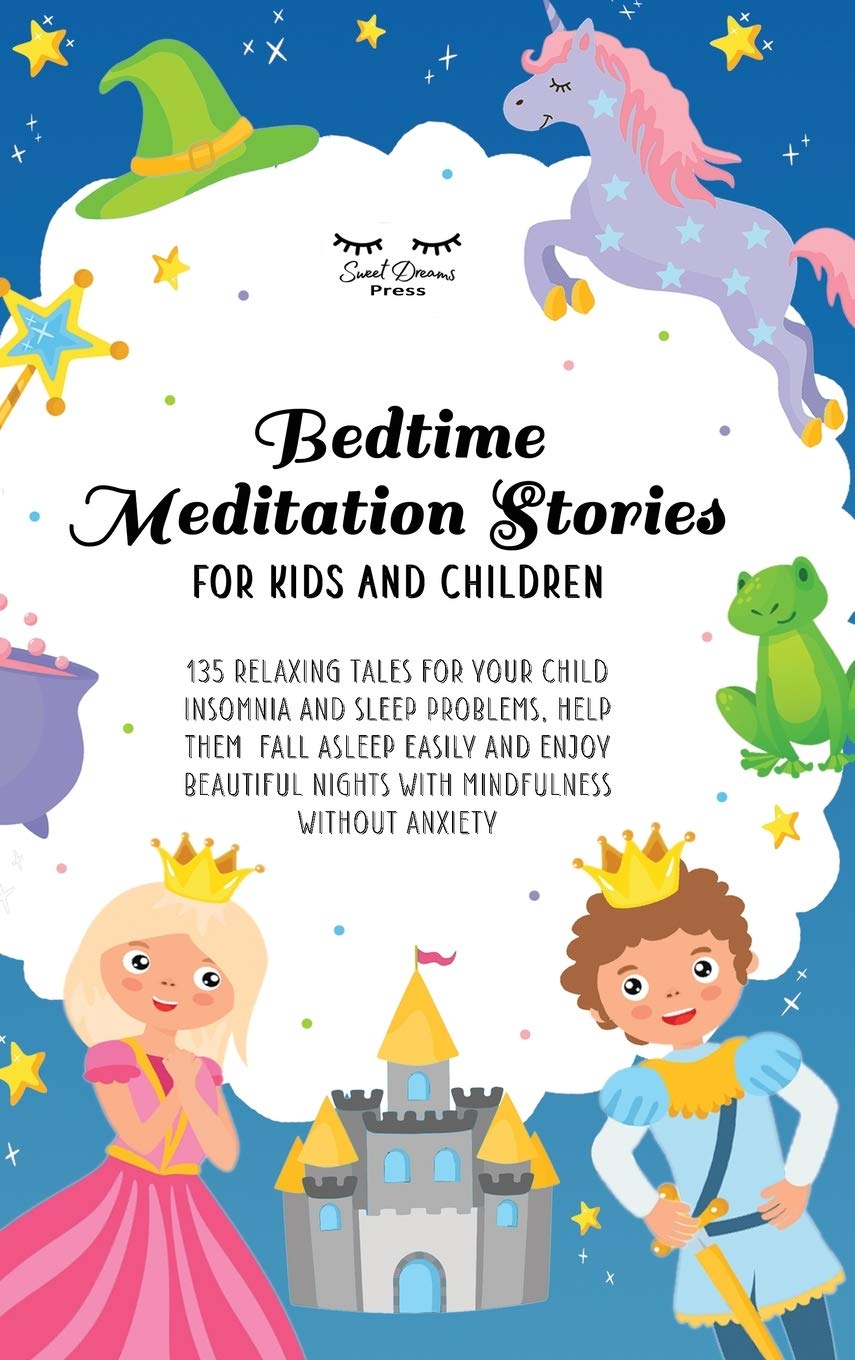
- The Sleep Book for Kids: How to Get a Good Night’s Rest by Dr. Seuss
- Goodnight, Sleep Tight: The Sleep Guide for Kids by Kim West, LCSW
- The Insomnia Workbook for Teens: A Cognitive-Behavioral Treatment Program by T. J. Murphy, PsyD
- Sleeping Through the Night: A Parent’s Guide to Healthy Sleep in Infants and Children by Jodi Mindell, PhD
Conclusion
Insomnia can be a difficult problem for children to deal with, but there are many different ways to treat it. If your child is having difficulty sleeping, talk to your doctor about the best treatment options for them. You may also want to consider seeking professional help from a therapist who specializes in sleep disorders.
A Word From Therapy Mantra
Your mental health — Your psychological, emotional, and social well-being — has an impact on every aspect of your life. Positive mental health essentially allows you to effectively deal with life’s everyday challenges.
At TherapyMantra, we have a team of therapists who provide affordable online therapy to assist you with issues such as depression, anxiety, stress, workplace Issues, addiction, relationship, OCD, LGBTQ, and PTSD. You can book a free therapy or download our free Android or iOS app.
